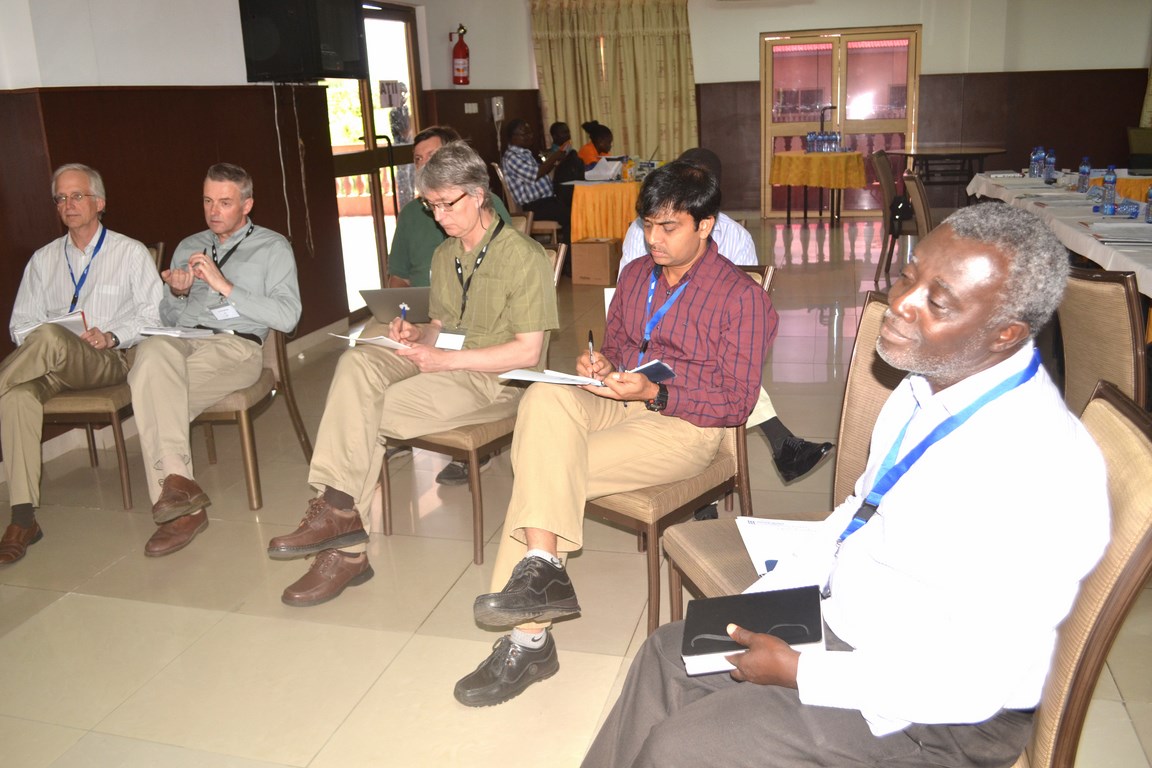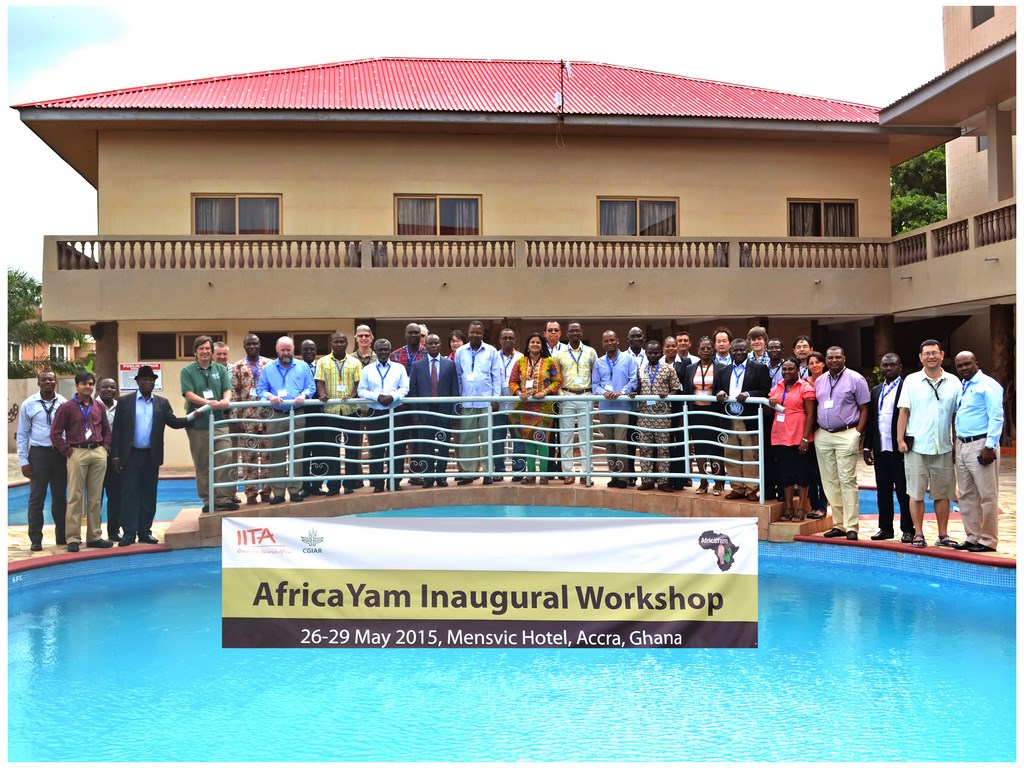During the inauguration of the new AfricaYam project, Dr Victor Agyeman, Director General of Crops Research Institute (CRI), Ghana, affirmed that the project could achieve more impact on farmers in the subregion.
“AfricaYam is sure to succeed,” he said, “because it involves a community of people from Anglophone and Francophone countries and uses agroforestry to tackle the effects of environmental degradation faced by farmers as a result of climate change.” He assured participants of his support in implementing recommendations on the community of practice when developed by the project.
Dr Robert Asiedu, IITA Director, Research for Development (West Africa), led a team of IITA representatives to the inauguration at Mensvic Hotel, Accra, Ghana, 26–29 May. The meeting’s objectives were to establish and strengthen links among the project team, review the work done so far, and discuss the project targets and activities in detail especially for the first year. The meeting also featured a training for accountants from partner NARS on financial management and IITA’s reporting procedures.
The AfricaYam project aims at enhancing the breeding of species of white yam (Dioscorea rotundata) and water yam (D. alata) for increased productivity in West Africa, specifically in Nigeria, Ghana, Bénin, and Côte d’Ivoire. It also aims to reduce production costs and adverse environmental impacts by developing and deploying end-user preferred varieties with high yield, greater resistance to pests and diseases, as well as improved quality. This will benefit diverse stakeholders primarily yam farmers, consumers, processors, and transporters.
AfricaYam is funded by the Bill & Melinda Gates Foundation over a five-year period and led by Dr David De Koeyer of IITA. The project is also collaborating with various research institutes in France, Japan, United Kingdom, and USA to increase results.

(L-R): Drs Jim Lorenzen (Gates Foundation), Glenn Bryan (JHI), David De Koeyer, Lava Kumar, and Robert Asiedu (IITA).
The project activities are grouped into four main components:
Strengthening capacity for yam breeding
Tools and methods to raise efficiency of yam breeding
Data management
Breeding and regional testing of promising breeder lines
Over the next five years of implementation, the following outcomes are expected from the project: active yam breeding programs in the target countries; improved efficiency of yam breeding programs through the use of faster and more precise tools and methods; and breeding methods used in national and international yam breeding programs in West Africa for sustainable development of new varieties that combine high and stable yield with good tuber qualities.



No Comments